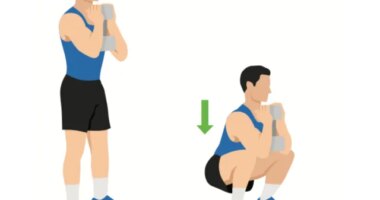
Coronavirus has not been kind to incumbent governments – they have had to mobilise vast resources and make era-defining policy decisions. To compound matters, they have had a relatively short time frame to do all this. Even so, there are some merits to the charges levelled against the UK government.
The NHS has been criticised for not budging on its compiled list of coronavirus symptoms, even though new data has emerged throughout the pandemic.
The calls for providing a more extensive list are now louder than ever after researchers at King’s College London have found skin rashes to affect one in 11 people with coronavirus.
King’s College London academics drew on data from 20,000 Brits who either tested positive for COVID-19 or were heavily suspected of having the disease.
They found nine percent of infected Britons also suffered from skin rashes, while eight percent of people with other tell-tale symptoms also had the skin ailment.
READ MORE: Coronavirus update: The long-term effects of COVID-19 could be worse than we fear
Dr Mario Falchi, who led the research, said COVID-19 patients reported suffering from the rashes for weeks — much longer than the more common symptoms.
READ RELATED: Car fumes from exhaust and heavy braking raise risk of heart attacks, study suggests
Writing in the study, which has not yet been published in a journal or peer-reviewed by other scientists, Dr Falchi said: “COVID-19 rashes may present in many forms and at different stages of the disease.
“The heterogeneous presentations, the time delay, as well as the focus on severely ill patients during the early phases of the pandemic, led to the skin being overlooked as an important target organ for COVID-19.
“Although it is less prevalent than fever, it is more specific of COVID-19 and lasts longer.”
The experts added: “Twenty-one percent of the SARS-CoV-2 positive surveyees presented with skin symptoms alone and would have been missed if using the NHS classic symptoms alone.”
What symptoms does the NHS website currently state?
According to the website, the main symptoms of coronavirus are:
- A high temperature – this means you feel hot to touch on your chest or back (you do not need to measure your temperature)
- A new, continuous cough – this means coughing a lot for more than an hour, or three or more coughing episodes in 24 hours (if you usually have a cough, it may be worse than usual)
- A loss or change to your sense of smell or taste – this means you’ve noticed you cannot smell or taste anything, or things smell or taste different to normal
“Most people with coronavirus have at least one of these symptoms,” it says.
It also advises anyone that has the main symptoms of coronavirus to stay at home (self-isolate) and get a test.
Source: Daily Express









